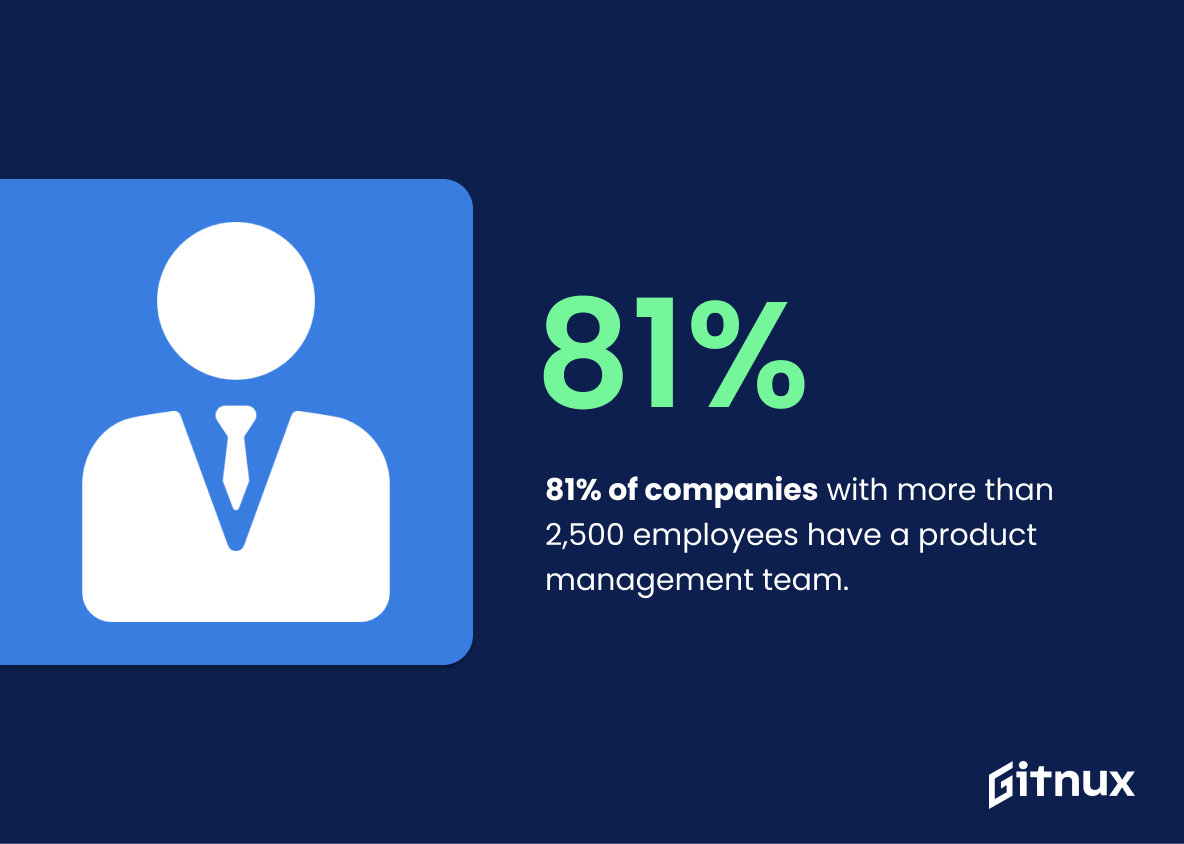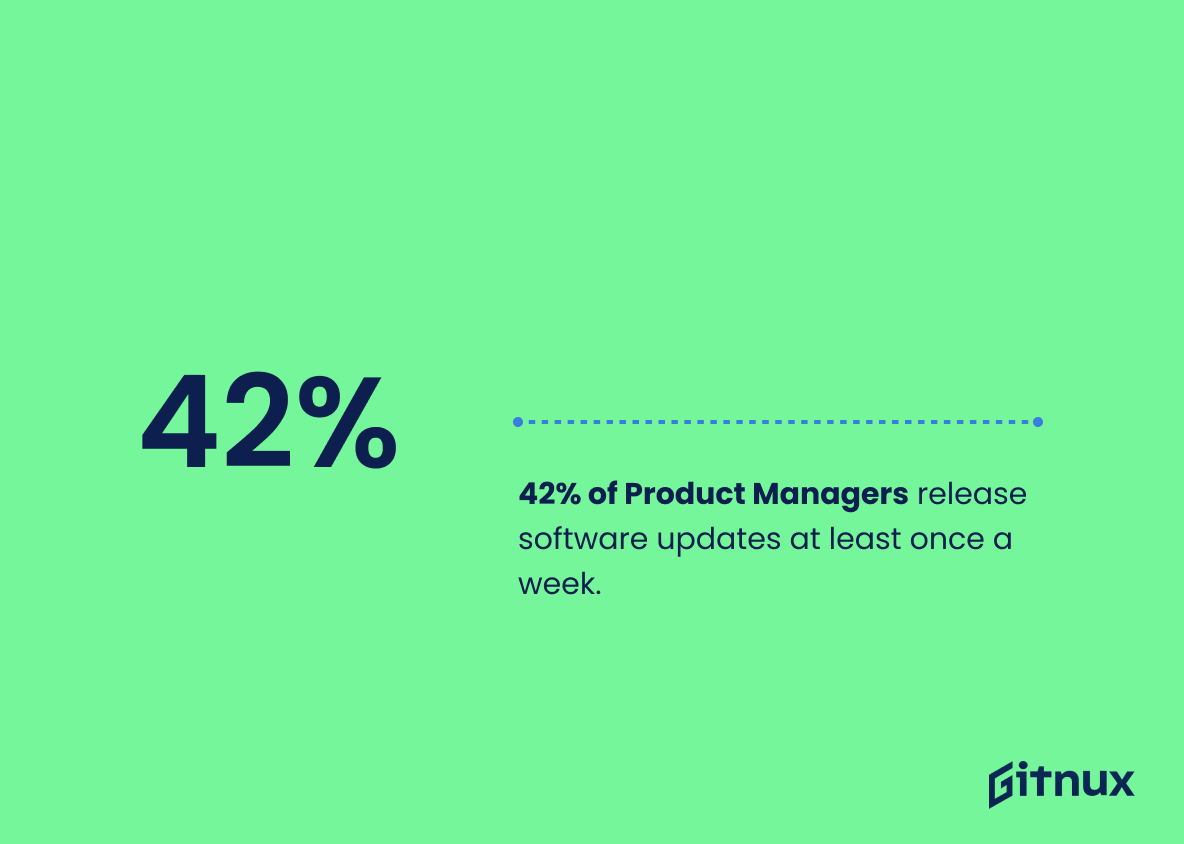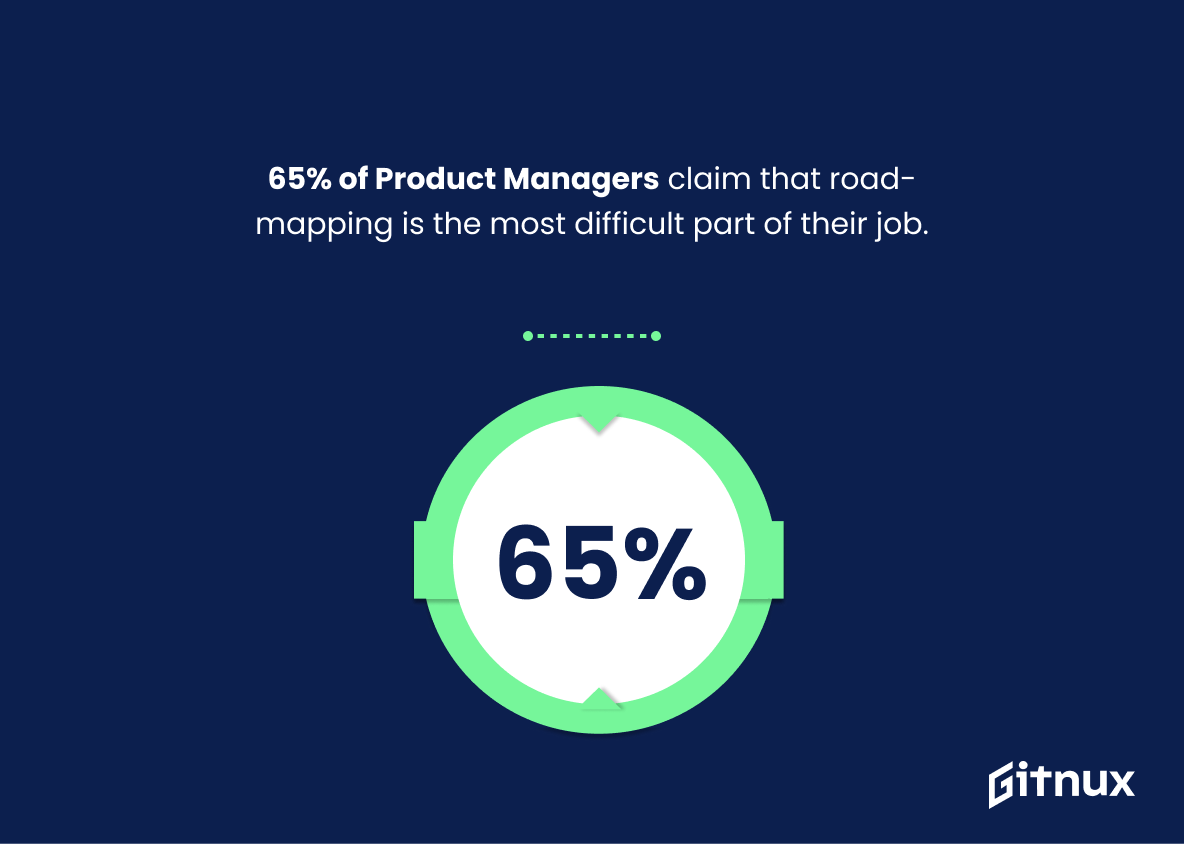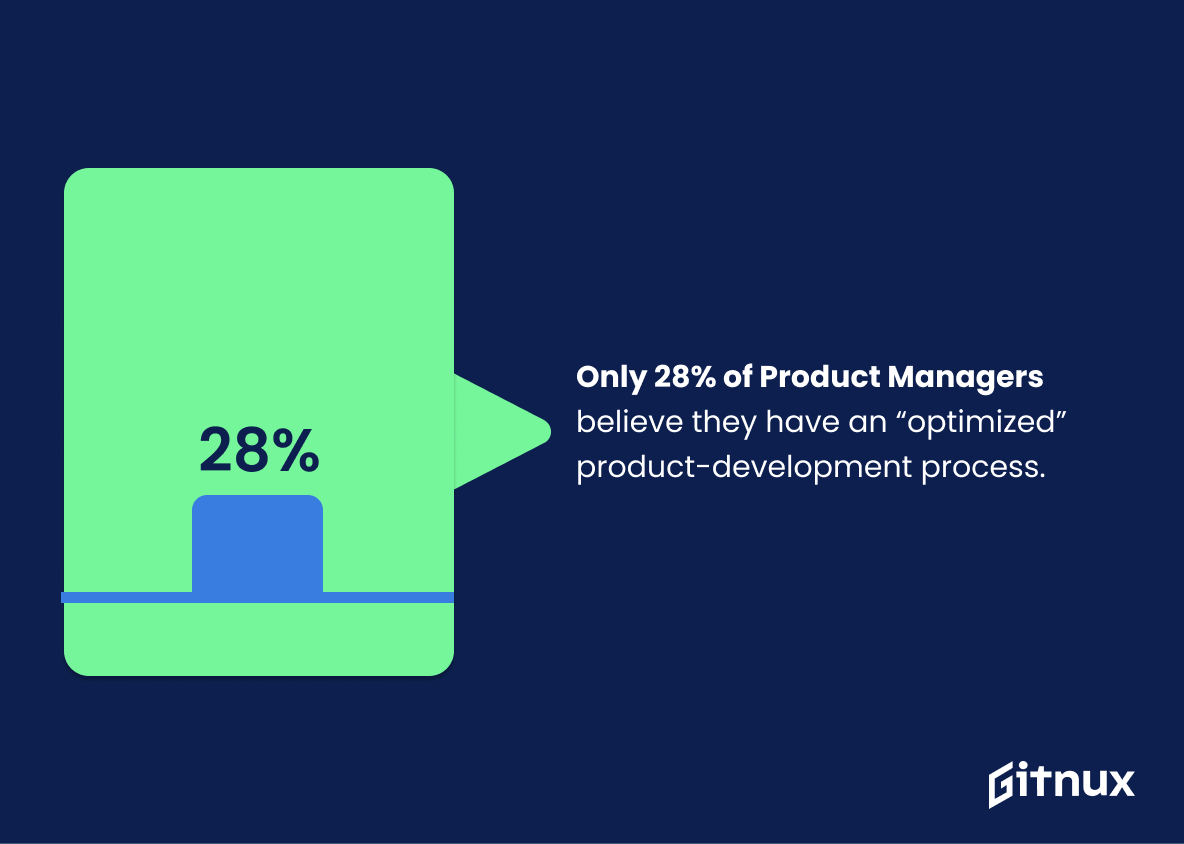Product Management is a crucial aspect of any thriving business, requiring a unique skill set. Surprisingly, only 20% of Product Managers possess formal business degrees; the majority have technical backgrounds. A minimum of five years’ experience is demanded in 69% of job postings. Larger companies, with over 2,500 employees, have product management teams in 81% of cases.
In the US, Product Managers earn an average salary of $112k annually. About half of their time (46%) is spent on internal meetings and project management, while only 17% rely solely on agile methodologies for project management. Frequent software updates are released by 42% of these professionals, with weekly updates being quite common.
However, gaps exist. Eight out of ten managers admit to their team’s insufficient market knowledge. Despite a 29% increase in demand from 2016-2019, and usage of an average of 3.6 tools for tasks like roadmapping, many find these tasks challenging. In fact, 65% find roadmap creation the hardest task, and 48% feel they lack time for strategic planning.
While 62% use data analytics to measure success, they also define success through user satisfaction (54%), feature adoption, and revenue retention. Cross-functional collaboration is deemed critical by 84%. In 2021, AI topped the disciplines within the PM role. Interestingly, only 28% believe they have optimized their process, while 7% see politics as the main challenge.
This data highlights the complexity and rewards of this profession, and the importance of experienced professionals who can navigate these nuances.
Product Management Statistics Overview
81% of companies with more than 2,500 employees have a product management team.
This statistic is a testament to the importance of product management teams in large companies. It shows that the majority of companies with a significant size recognize the value of having a dedicated team to manage their products. This statistic is a great example of how product management is becoming an increasingly important part of the business landscape.
Only 17% of Product Managers use an “agile” methodology exclusively.
This statistic is a telling indication of the current state of Product Management, as it suggests that the majority of Product Managers are not utilizing an agile methodology exclusively. This could mean that many Product Managers are not taking full advantage of the benefits that agile methodology can provide, such as increased efficiency and improved customer satisfaction. As such, this statistic is an important reminder of the need for Product Managers to stay up-to-date on the latest trends and best practices in the field.
42% of Product Managers release software updates at least once a week.
This statistic is a testament to the importance of Product Managers in the software development process. It shows that Product Managers are actively involved in the process of releasing software updates, ensuring that the product is up-to-date and functioning properly. This statistic is a valuable insight into the role of Product Managers and the impact they have on the success of software products.
80% of product management executives say that their teams are below target proficiency in “market knowledge.”
This statistic is a telling indication of the need for product management executives to focus on improving their teams’ market knowledge. It highlights the importance of staying up-to-date with the latest trends and developments in the industry, as well as understanding the needs and wants of the target market. This knowledge is essential for product management executives to be able to make informed decisions and create successful products.
65% of Product Managers claim that road-mapping is the most difficult part of their job.
This statistic is a telling indication of the challenges Product Managers face in their day-to-day work. It highlights the complexity of road-mapping and the need for Product Managers to be well-versed in the process in order to be successful. This statistic is an important reminder of the importance of road-mapping in Product Management and the need for Product Managers to be prepared for the task.
The average tenure of a Product Manager is 2 to 3 years.
This statistic is a telling indication of the ever-evolving nature of the product management field. It speaks to the fact that product managers must stay on top of the latest trends and technologies in order to remain competitive and successful in their roles. It also highlights the importance of staying up-to-date with the latest industry developments, as the average tenure of a product manager is relatively short. This statistic is a reminder that product managers must stay ahead of the curve in order to remain successful in their roles.
62% of product teams use data analytics to measure their product’s success.
This statistic is a testament to the importance of data analytics in product management. It shows that the majority of product teams recognize the value of using data to measure their product’s success. This statistic is a valuable insight for product managers, as it demonstrates the importance of leveraging data to make informed decisions about their product’s performance.
In 2021, Artificial Intelligence was the most popular discipline within product management.
This statistic is a testament to the growing importance of Artificial Intelligence in product management. It highlights the need for product managers to stay up-to-date with the latest AI technologies and trends in order to remain competitive in the industry. Furthermore, it serves as a reminder that AI is becoming an increasingly integral part of product management, and that product managers must be prepared to leverage its potential in order to create successful products.
Only 28% of Product Managers believe they have an “optimized” product-development process.
This statistic serves as a stark reminder that the majority of Product Managers are not satisfied with their product-development process. It highlights the need for Product Managers to take a closer look at their process and make improvements to ensure that their products are optimized.
7% of product managers see “internal politics” as their number one challenge.
This statistic is a telling indication of the difficulties product managers face in their day-to-day operations. It highlights the fact that internal politics can be a major obstacle to success, and that product managers must be prepared to navigate these challenges in order to be successful. This statistic is an important reminder that product managers must be aware of the potential pitfalls of internal politics and be prepared to address them in order to ensure the success of their products.
84% of Product Managers believe that cross-functional collaboration is critical in leading a product to success.
This statistic is a powerful indicator of the importance of cross-functional collaboration in product management. It shows that the vast majority of product managers recognize the value of working with other departments to ensure the success of their product. This statistic is a valuable insight for anyone interested in product management, as it highlights the importance of collaboration in the field.
Conclusion
The statistics presented in this blog post demonstrate the importance of product management and its growing demand. Product Managers are expected to have a combination of technical knowledge, business acumen, experience, and strategic planning skills. They must also be able to collaborate with cross-functional teams in order for their products to succeed.
The average salary is high at $112,726 per year and the job postings require an average 5 years of experience. With AI becoming increasingly popular within product management roles, it’s clear that there will continue to be a need for skilled professionals who can navigate complex projects while keeping user satisfaction top priority.
References
0. – https://www.www.cio.com
1. – https://www.www.mixpanel.com
2. – https://www.svpg.com
3. – https://www.www.martechcube.com
4. – https://www.www.productmanagementfestival.com
5. – https://www.www.linkedin.com
6. – https://www.blog.aha.io
7. – https://www.medium.com
8. – https://www.nulab.com











